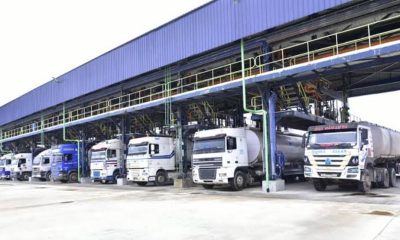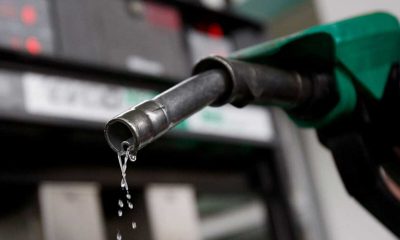Business
Dangote refinery set for global oil market, receives US crude shipments

Dangote refinery set for global oil market, receives US crude shipments
The Dangote refinery is set to reshape global oil flows as it ramps up operations, according to a report by S&P Global.
The refinery, which began operations in January, has already received 18 shipments of US crude oil, making up 30% of the total 47 cargoes delivered to date.
The 650,000 barrels per day (bpd) facility, developed by Africa’s richest man Aliko Dangote, aims to achieve fuel self-sufficiency for Nigeria.
S&P Global’s August 1 report highlights the refinery’s swift impact, noting that it had reached a production capacity of 400,000 bpd within six months.
This output includes diesel, jet fuel, naphtha, and fuel oil for both domestic and international markets.
Production of petrol is expected to commence by mid-August.
The report stresses that the refinery’s operations are already influencing crude oil markets.
Notably, it has led to a reduction in the number of Nigerian oil cargoes being exported, as the facility imports US WTI Midland, a light sweet crude oil.
The refinery’s preference for WTI Midland and lighter Nigerian crudes is expected to tighten the market for these grades.
A West African crude trader quoted in the report suggested that the completion of the refinery’s ramp-up to full capacity could significantly disrupt the market for WTI Midland crude.
READ ALSO:
- Woman faints as police disperse protesters in Abuja
- S’African Rupert dethrones Dangote as Africa’s richest man
- 3,500 Nigerian households receive ECOWAS N1.4bn aid
Designed to primarily process Nigerian crude, the Dangote refinery can also handle other light and medium crudes. So far, it has received about 170,000 bpd of Nigerian crude from 47 shipments, including 20 from the Nigerian National Petroleum Company (NNPC) Limited. Long-term supply contracts for US WTI Midland have been secured, favoured for its competitive pricing.
As of July 31, WTI Midland was priced at $82.36 per barrel in Rotterdam, slightly lower than Nigeria’s Bonny Light at $82.80 per barrel.
However, ongoing foreign exchange challenges have caused delays in unloading some WTI Midland shipments.
The report notes that the refinery’s operations have had a ripple effect on international markets, particularly in Europe, the largest consumer of Nigerian crude oil. European imports of Nigerian crude have declined since the refinery began operations, with only US oil imports decreasing more.
Increased crude supplies from Brazil, Egypt, Libya, and Guyana have been observed, while Nigeria, traditionally an exporter, has seen a significant rise in WTI Midland imports. This shift is impacting Asia and Europe, major markets for US crude.
European imports of WTI Midland have surged by 20% over the past two years, filling gaps left by sanctions on Russian oil.
However, Nigerian crude exports have declined, dropping from 1.5 million bpd in Q4 2023 to 1.24 million bpd in Q2 2024.
Despite market fluctuations, the Dangote refinery has denied any allegations of reselling imported US and Nigerian crude oil.
Dangote refinery set for global oil market, receives US crude shipments
Business
Petrol: Dangote refinery resumes loading trucks after payment

Petrol: Dangote refinery resumes loading trucks after payment
Dangote Petroleum Refinery has resumed loading of the Premium Motor Spirit, PMS, also known as petrol on trucks for oil marketers.
With the suspension of Naira for crude programme, rising price of crude oil and foreign exchange issues, the 650,000 barrels per day, bpd refinery stopped loading of trucks, based on Naira.
While loading by ships on dollar basis continued, the $20 billion refinery requested oil marketers, having an arrangements with it to “top up” payment so they can be supplied petrol.
However, checks by Vanguard indicated that many companies, including MRS Oil & Gas, which complied, were being loaded at N880 per litre, yesterday.
A reliable industry source, who confirmed the development, said: “Loading by trucks has commenced for oil marketing companies, which have added more monies.”
Meanwhile, petrol prices have risen across the country, with new pump and depot prices reaching up to N960 per litre and N900 per litre, according to the latest price list, obtained from MRS Oil and Gas.
READ ALSO:
- Couple, 4 others die in Abuja-Lokoja Road crash
- NSCDC personnel die, policemen, soldier injured in Abia auto crash
- 2024 Hajj: Reps refer NAHCON to anti-graft agencies
The adjustments, which became effective from March 28, 2025, indicated higher prices across major cities, with Lagos having the lowest rates and northern states recording the highest.
In Lagos, petrol will sell for N930 per litre, while states in the South West, including Ogun, Oyo, Osun, Ekiti, Kwara, and Ondo, will pay N940 per litre.
Also, in the South South and South East regions, including Edo, Abia, Akwa Ibom, Bayelsa, Rivers, Cross River, and Enugu, the product would be sold at N960 per litre.
In Abuja, Kaduna, Benue, Kogi, Niger, Sokoto, Kebbi, and Nasarawa will pay N950 per litre, while Zamfara, Kano, Jos, Bauchi, Taraba, Adamawa, Borno, Katsina, Jigawa, Gombe, and Yobe will pay N960 per litre.
The naira-for-crude arrangement was originally designed to enhance domestic fuel supply, curb import costs, and stabilise pump prices.
Under the scheme, Dangote Refinery has received 48 million barrels of crude oil in naira since October 2024, with an overall supply of 84 million barrels since it began operations in 2023.
Meanwhile, in a report obtained from its website, the Dangote Petroleum Refinery stated that “The Refinery will meet 100% of the Nigerian requirement of all refined products and also have a surplus of each of these products for export.
“Dangote Petroleum Refinery is a multi-billion-dollar project that will create a market for $21 Billion per annum of Nigerian Crude. It is designed to process Nigerian crude with the ability to also process other crudes.”
Petrol: Dangote refinery resumes loading trucks after payment
Auto
CFAO subsidiary LOXEA unveils BYD electric vehicles in Nigeria
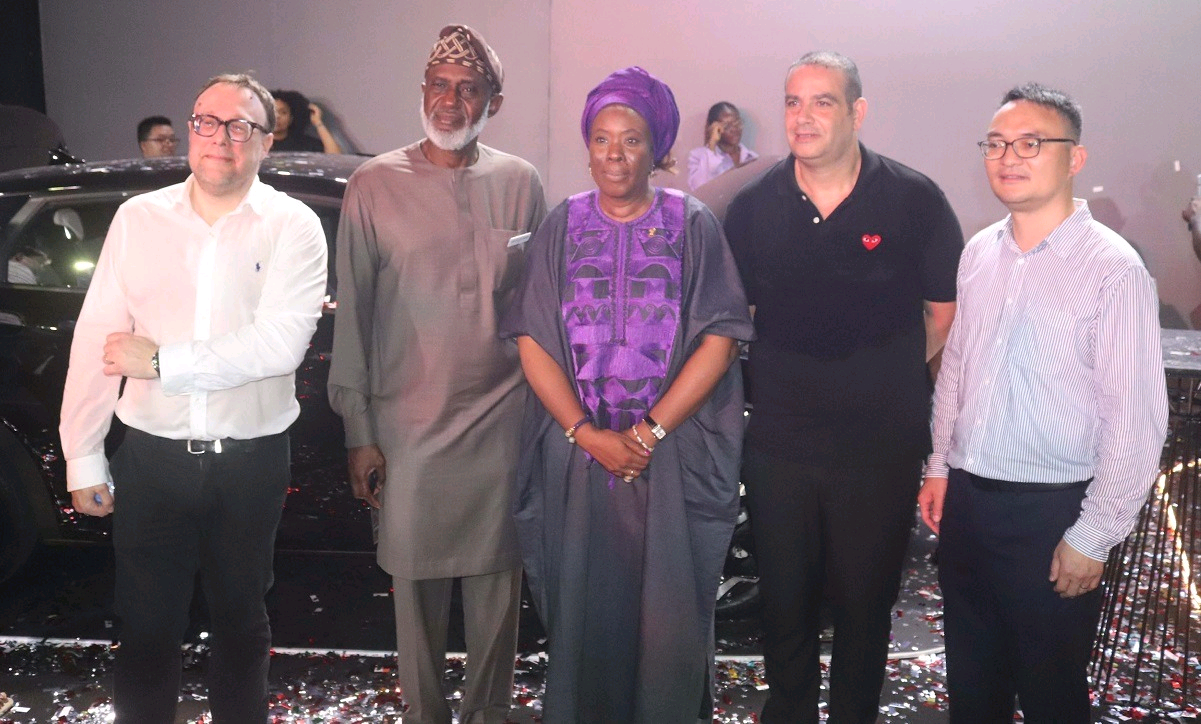
CFAO subsidiary LOXEA unveils BYD electric vehicles in Nigeria
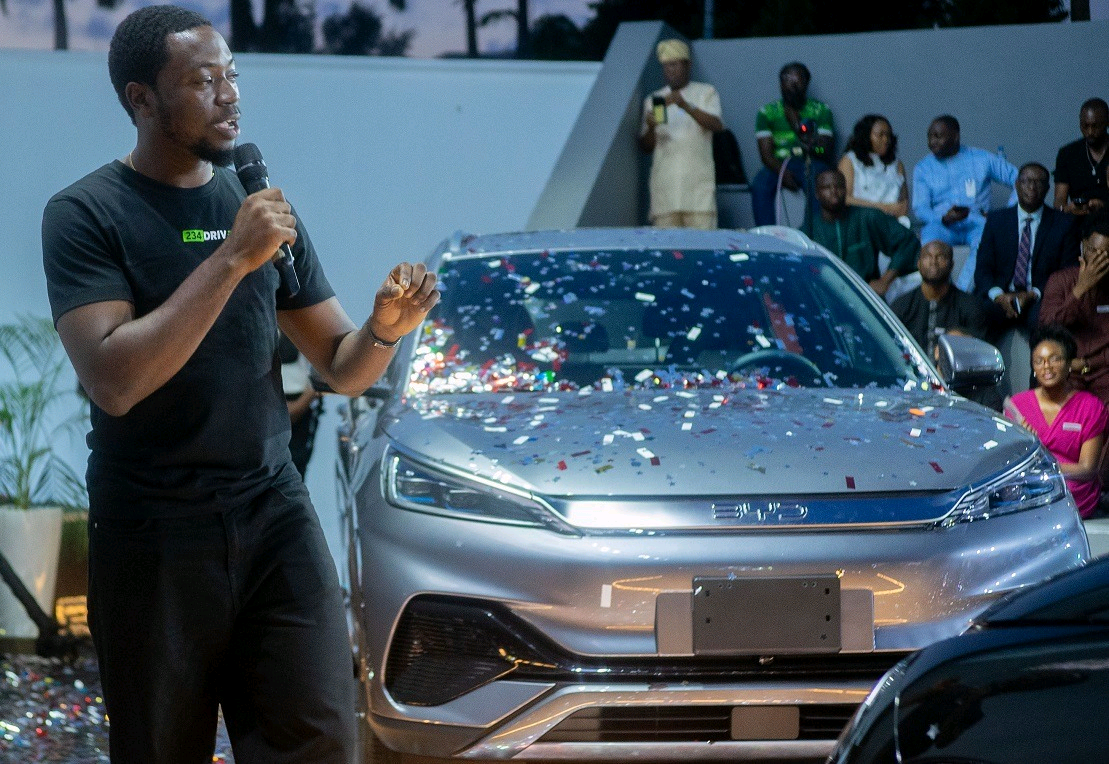
A subsidiary of CFAO Mobility, LOXEA Nigeria, has introduced the BYD brand of electric vehicles to the Nigerian market.
LOXEA has thus become the pioneer in bringing the renowned electric vehicles (EVs) manufactured by BYD (Build Your Dreams) into the country.
BYD is a high-tech multinational company and the world leader in electric and plug-in hybrid vehicles.
“As a Fortune Global 500 enterprise, BYD relentlessly innovates to create a sustainable future,” said the automaker.
“In November 2024, BYD becomes the first company in the world to achieve the milestone with the roll-off of its 10-millionth NEV.
“BYD achieves 4.27 million new energy vehicle sales in 2024, claiming the global sales champion in the third consecutive year.”
Managing Director of LOXEA Nigeria, Mr. Mehdi Slimani, stated, “We are proud to distribute this type of electric vehicle and all its associated services.
“Our upcoming showroom in Victoria Island, Lagos will be a place dedicated to the discovery of BYD vehicles, combining modernity, comfort, and economy of use. “It is very important for CFAO Mobility in Nigeria to participate in this way in the country’s energy transition and support our customers who wish to make the switch to electric.”
Chief Executive Officer of CFAO Mobility, Marc Hirschfeld, spoke on the importance of this launch for both the company and the country, saying, “BYD is one of the world’s leading manufacturers of electric vehicles, with a level of innovation know-how that now matches the expectations of our markets in Africa.
“A whole new ecosystem has to be designed around mobility in African cities.
“This applies not only to individual and corporate customers, but also to stakeholders including urban public transport networks and government agencies.
LOXEA specialises in providing innovative mobility solutions across Africa.
With a commitment to sustainability and excellence, it delivers high-quality mobility services, from electric vehicle leasing to fleet management and infrastructure support.
LOXEA is a leading player in innovative mobility solutions in Africa, offering clients a range of 100% electric vehicles from BYD.
As a pioneer in the deployment of electric vehicle solutions across the continent, LOXEA is bringing to Nigeria a comprehensive suite of services associated with electric vehicles.
This includes the installation of electric charging stations, vehicle maintenance, repair services, and the provision of spare parts.
In addition to providing an inaugural charging station at the upcoming LOXEA Victoria Island showroom, the company is also offering an adaptable solution that allows customers to charge their EVs conveniently at home.
The company says more information on this can be obtained from its website: https://www.byd-nigeria.com/ .
Business
Petrol price rises to N935 in Lagos
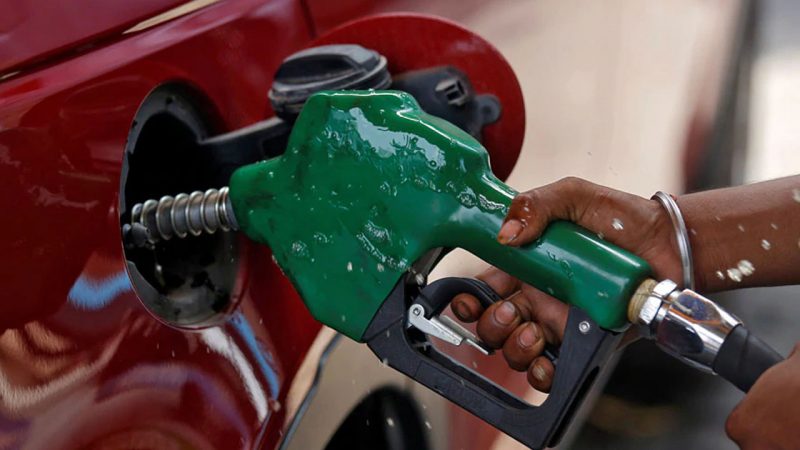
Petrol price rises to N935 in Lagos
Petrol marketers across the Lagos metropolis at the weekend raised the pump price of the commodity to between N925 per litre and N935 per litre.
This is in response to the increase in the landing cost of petrol, the stoppage by Dangote Refinery of the sales of the commodity in naira about two weeks ago and the delay in conclusion of negotiation on the naira for crude policy.
Last Monday, the landing cost of the commodity rose to N843.28 per litre from a previous N797 per litre a forthnight ago.
This increase represents an addition of N46 per litre to the landing cost of petrol.
Some filling stations like TotalEnergies sold at N935 per litre; MRS, N925.
ARA is a crucial global oil and biofuel hub known for its physical infrastructure, pricing benchmarks, and significant oil consumption.
It added that seasonal refinery maintenance across Europe and a recent fire at the Falconara refinery in Italy have further restricted supply, adding to market tightness and price volatility.
The Association said the foreign exchange rate remained fairly stable, with minimal fluctuations observed over recent periods.
Therefore, the landing cost of petrol, being fundamentally influenced by these elements, is likely to change several times intra-day.
It advised that savings can be achieved through negotiations, access to foreign exchange, and logistics efficiencies, for example, by eliminating Ship to ship (STS) transfer where possible or receiving larger cargos.
MEMAN explained that the landing cost into Apapa/ASPM Jetty is calculated based on the following assumptions: exchange rate, finance charges at 32 per cent per annum for 30 days; STS and related charges; NIMASA charges at two per cent of local STS; NMDPRA at 0.5 per cent MDGIF; NPA and VAT charges covering towage, berthage/mooring, ship dues, cargo dues, contingency, fire coverage, agency fee; other costs at N2 per litre.
Petrol price rises to N935 in Lagos
-
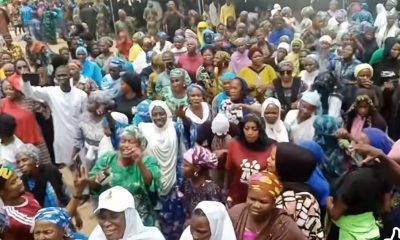
 metro14 hours ago
metro14 hours agoBREAKING: Senator Natasha defies restrictions, arrives homecoming rally by helicopter [VIDEO]
-

 metro2 days ago
metro2 days agoHow they murdered my Kano-bound passengers in Edo
-

 International2 days ago
International2 days agoIn pictures: Eid celebrations around the world
-

 metro21 hours ago
metro21 hours agoUromi: Edo residents flee towns over likely reprisal attack, arrest
-

 metro2 days ago
metro2 days ago‘I was offered N5bn bribe to impeach Fubara’
-

 metro20 hours ago
metro20 hours agoBreaking: ‘Cancel your homecoming’ — Police tell Senator Natasha
-

 metro1 day ago
metro1 day agoKano Gov Yusuf, Sanusi linked to Eid killings
-

 Sports2 days ago
Sports2 days agoNigerian boxer collapses, dies in ring during fight in Ghana

